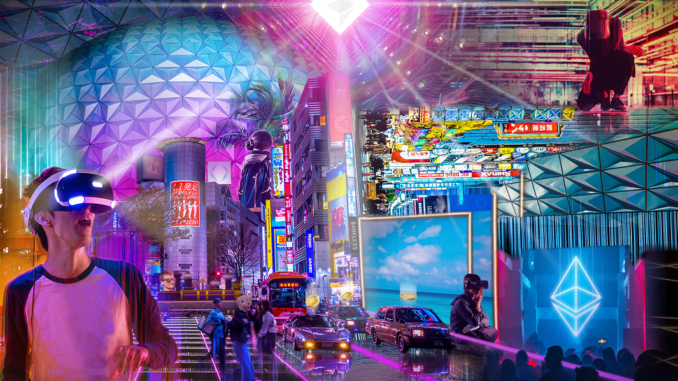
The ‘Metaverse’ is coming. Facebook’s parent company, Meta, is betting on virtual and augmented reality as the future of connecting and interacting. They’re bringing billions into building the ‘Met’verse’ – ‘an immersive virtual world where you can do everything from attending a concert to trying on new outfits, all from the comfort of your home.
Sound like science fiction? It’s as far off as you might think. Meta recently unveiled their latest virtual reality headset, the Quest 2, which offers high-end features at an affordable price point. They’re saying VR is more accessible and social than ever before. The idea is that one day, the lines between our physical and digital realities will blur as AR smart glasses become commonplace. In the Metaverse, we’l seamlessly connect with friends and colleagues from anywhere.
The Metaverse vision is ambitious, but with Meta’s resources and dedication to pushing the limits of virtual technologies, they might pull it off. The future is virtual, and it’s starting faster than you realize. Are you ready to jack in? The Metaverse awaits.
Mark Zuckerberg’s Vision: How Meta Plans to Build the Metaverse
Facebook CEO Mark Zuckerberg envisions the metaverse as the next social connection and interaction evolution. The metaverse is a virtual reality space where people can socialize, learn, work, and play together.
Zuckerberg’s Vision for the Metaverse
Meta (formerly Facebook) invests heavily in virtual and augmented reality to build the metaverse. Zuckerberg believes these technologies will transform how we live, work and connect with each other.
In the metaverse, you’you’llable to hang out with friends, attend concerts, take classes, and more – all from your home. Your avatar can travel between virtual worlds, with your virtual items and identity traveling with you.
Meta is developing VR headsets, AR glasses, and neural interfaces to make the metaverse a reality. They hope these devices will eventually be as common as smartphones are today. The key is to make virtual and augmented reality accessible, affordable, and intuitive for as many people as possible.
Of course, there are concerns about privacy, misinformation, and addiction in virtual spaces. Meta must build safety, security, and well-being into the metaverse to gain users.
If ZuckZuckerberg’sion comes to fruition, the metaverse could transform the way we live and connect in the decades to come. While the technology is still emerging, the metaverse seems poised to change our lives in ways we can only imagine. The future is virtual – and it’sit’sing sooner than you might think.
The Role of VR and AR in Bringing the Metaverse to Life
Virtual and augmented reality are bringing the metaverse to life. You can be transported into a completely immersive digital world with VR headsets. AR overlays digital information onto the real world using your phone camera or smart glasses. Both technologies are poised to transform how we interact socially and with technology.
The Role of VR in the Metaverse
Virtual reality lets you explore and experience immersive digital worlds. Put on a VR headset, and suddenly, you’re in a different place. Motion controllers allow natural interaction with virtual objects and environments. Many major tech companies are investing heavily in VR, including Facebook, Sony, HTC, and Valve.
Facebook’s Quest 2 standalone VR headset has been a breakthrough for VR adoption. It’s timeless, affordable, and provides an easy setup and high-quality experience. In Horizon Workrooms, people can meet in a virtual conference room. Venues will host live events in VR. As technology improves, VR will enable us to connect with friends and colleagues from anywhere.
How AR Will Complement the Metaverse
While VR transports you to digital worlds, AR enhances the real world with digital information. AR smart glasses will eventually replace your phone screen, overlaying valid data, notifications, directions, and more onto the world around you.
Facebook’s partnership with Ray-Ban will release the first generation of AR smart glasses in 2021. Though early models may seem basic, future AR glasses will enable sophisticated computer vision, object recognition, and AI. AR glasses will transform how we interact with information and could replace many of the screens in our lives.
With significant tech companies investing in XR, virtual and augmented reality will soon reshape how we experience and interact with technology. The metaverse is coming, and it’s going to change everything.
The Future of Social Interaction: How AI Will Shape Our Connected Virtual Worlds
AI and virtual/augmented reality are poised to transform how we connect and interact socially in the coming decades. As these technologies continue advancing, they will shape the “met” verse” – ” shared virtual space where people can interact, work, play, and socialize.
Seamless Virtual Interactions
In the metaverse, AI will enable seamless, natural interactions between people in virtual and augmented reality. Gesture recognition, facial tracking, and natural language processing will allow us to communicate with friends and colleagues as if we were together in person.
AI assistants may join in on conversations, offering information or recommendations based on the discussion and each individual’s interests. They could suggest new virtual meeting locations or automatically handle logistics like scheduling meetings.
Over time, AI-powered virtual interactions may feel as engaging and meaningful as in-person social experiences. The metaverse could become a place where new solid friendships are forged and communities are built.
Of course, new technologies often bring opportunities, risks, and challenges that must be addressed. Privacy, data security, and the responsible development of AI will be crucial in building virtual worlds where people feel comfortable connecting and interacting. But if done right, the metaverse may help foster new levels of empathy, understanding, and human connection across the globe.
Conclusion
So there you have it. Mark Zuckerberg and Meta are convinced the metaverse is the future of social connection, and they’re investing heavily to make that virtual reality a reality. Forget Facebook—the company is pivoting in a big way to build out immersive digital worlds where you can work, play, create, and connect. Sure, it may sound like science fiction for now, but virtual and augmented reality are technologies that keep advancing in power and accessibility.
Before we know it, the metaverse could transform how we interact and experience the digital world. The vision is an open digital universe filled with virtual spaces where people can hang out, play, and connect with friends and family from anywhere. If Meta succeeds in building it, the metaverse could become a new platform for creativity, community, and commerce. The future is virtual, and it’s starting sooner than you might think. What do you say — are you ready to jack in and see where this rabbit hole leads? The choice is yours. For now, anyway.


Be the first to comment